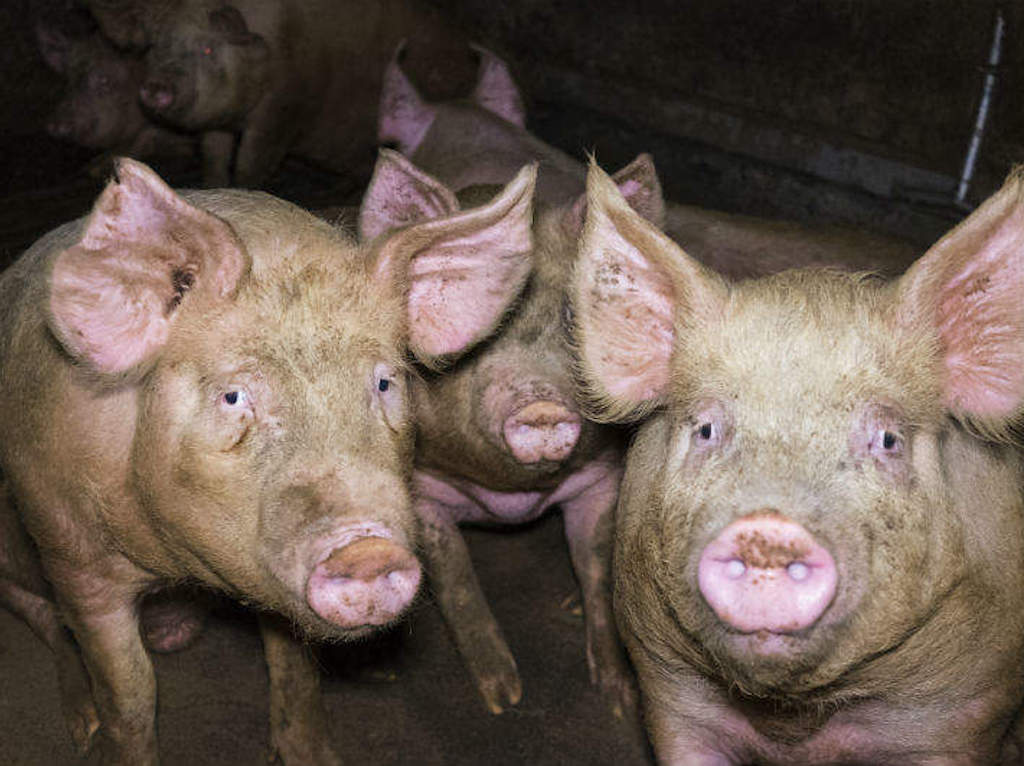
“You can literally smell the pig and cow sh*t all around you”: A food technologist and Italian transplant living in one of Italy’s main pork production regions shares her feelings about the government’s push to ban cultivated meat.
Yesterday, the Italian government endorsed legislation that would prohibit the production of laboratory-made meat, feed and other “synthetic” foods. The country’s agriculture minister emphasized that the bill was aimed at protecting Italy’s agri-food heritage and health protection. In recent months, agricultural organizations including Coldiretti, Italy’s biggest farmers’ association, have amassed half a million signatures demanding protection for “natural” food against “synthetic” food. Prime Minister Giorgia Meloni, part of the right-wing Brothers of Italy political party, is among those who have signed it.
If the bill passes, Italian food producers will be prevented from producing food or feed from animal cell cultures or tissues; violators would face up to €60,000 in penalties.
Here’s what they’re not telling you about Italy’s so-called “protection of food culture and tradition” in relation to heavy fines for cultured meat: You can literally smell the pig and cow sh*t all around you in the main regions of Italy that specialize in producing the country’s traditional meat and animal-based products. One of those regions is Emilia-Romagna, where I live with my family.
I’ve been living in the aptly-named “Italian food valley” for the last few years, the land of world-famous foods like prosciutto di Parma and Parmigiano Reggiano. The food here is incredible. Even fruits and vegetables are some of the best on the planet. Living here, I re-learned an important lesson: food is best enjoyed outside the “fast-food” culture.
Imagine yourself inside a car driving by fields and factories where animals are reared. You see all these beautiful sights: lush vineyards and bright green fields. But oh, the smell! The car’s windows are closed but you can still smell the stink from the animals. The cows and pigs in their pens. The odor permeates everywhere; it’s inescapable. The air quality is bad. So, so bad! This is a reality of life for people like me who live in these areas.
And it’s the price we pay for all those delicious meat- and dairy products the region produces. It makes sense that people want to protect it- it’s a very successful industry. Meat accounts for a whopping 57.7% of total exports from the region. The whole world craves our Parma ham.
You love your polpette, ragú, gnocco fritto and all the many types of salumi? Fill your lungs with this air. It has become so normal it is a part of the food culture and heritage.
And the stench is only one (awful) part of it. There are also all the resources that producing meat the “natural” and “traditional” way requires. The water. The feed. The workers. Remember the drought last year? This year doesn’t seem to be any better after a winter of little rain and snowfall.
If this rebranding by Italy’s Ministero delle Politiche Agricole, Alimentari e Forestali (MiPAAF) is about food sovereignty, then this move counters that.
Because people should have freedom. And that means choices. Choices around the foods we eat and how they are produced. But also, the freedom to choose a future where people’s health, food tradition, and the planet’s future are not compromised.
I feel so conflicted about all of this, particularly because Italy is where I first came across the idea of cellular agriculture. I moved here to get my master’s in food innovation and Dr. Mark Post (the Dutch scientist who first created cultivated meat and the founder of OG cultivated meat company Mosa Meat) was our visiting professor. We attended his lectures and worked on related experiments in a lab right here in Italy. A few months later, my team was researching solutions for the future of meat, and cultivated meat emerged as one of our biggest findings.
I’ve had many a discussion with my Italian partner during which I’ve shared how much the sight of a basic steel tank and the centuries-old fermentation tradition it represents excites me. Italians have mastered the microscopic world and I can easily picture Italy as a leader in cultivated and fermentation-based protein technologies, after all, Italians are masters of flavour, fermentation and great stewards of culinary tradition, traditions, that were born out of innovation many centuries ago.
If the country’s meat and dairy industry feels threatened, this new regulatory move doesn’t sound like a bold move. It feels desperate. And if history is our teacher, we know that we don’t achieve greatness when we operate from fear.
When I talk to my Singaporean friends, they have a totally different mental model. The Lion City state’s government has understood what’s at stake: nothing short of their national food security. Singapore’s 30 by 2030 plan, which involves ensuring that the country achieves 30% domestic food production by the year 2030, has enabled the city-state to become Asia’s food tech capital. In 2020, it became the first country to approve the sale of cultivated meat, a bold move that made headlines around the globe. China has recently pledged its support to alternative proteins too. These countries see the (climate crisis) writing on the wall.
Italy has all the elements in place to be a future food leader: knowledge (both modern and traditional), resources, and one of the best climates for growing food on the planet (if you have ever tasted a fresh, ripe Italian tomato, then you know.
My hope for Italy? That tradition and technology can co-exist so my Filipina-Italian daughter gets a chance at a safe, ethical and sustainable future.
An early version of this article was first published on social media.
Disclaimer: Jennibeth does work for Green Queen. This had no effect on the publishing of this editorial.
The post OpEd: What The Anti-Cultivated Meat Brigade Aren’t Telling You About Italian Pork & Beef Production appeared first on Green Queen.
This post was originally published on Green Queen.